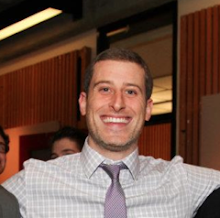
As a Peace Corps Volunteer, I am graciously treated to a free subscription of Newsweek. Normally they come in bundles of 4 or 5 and cover the last two months of news. This was great while the internet was not available but now I am properly equipped and consequently I don't read them all too often anymore.
It's unfortunate really because I used to be exposed to voices I wouldn't normally seek out like Fareed Zakaria. He is an important journalist and in my opinion Newsweek's best buy in terms of its contributors. He was a 'post-American' thinker before he coined the term in his new book "The Post-American World." I don't always agree with him - particularly when it comes to global financial issues (he has a tendency to compartmentalize financial success and social responsibility). But I agree with him enough to enjoy reading him.
Excerpts from his new book are available on Newsweek online here. After having read them I am so excited to read his book. Item number 1 on the "To Do" list once I am home. Below I have cut out some moments from the excerpts that demonstrate to me the prescience and perspective his work will bestow upon us.
I. The End of Pax Americana
Why do we think we live in scary times? Part of the problem is that as violence has been ebbing, information has been exploding. The last 20 years have produced an information revolution that brings us news and, most crucially, images from around the world all the time. The immediacy of the images and the intensity of the 24-hour news cycle combine to produce constant hype. Every weather disturbance is the "storm of the decade." Every bomb that explodes is BREAKING NEWS. Because the information revolution is so new, we—reporters, writers, readers, viewers—are all just now figuring out how to put everything in context.
III. A New Nationalism
In many countries... nationalism arises from a pent-up frustration over having to accept an entirely Western, or American, narrative of world history—one in which they are miscast or remain bit players... divergent national perspectives always existed. But today, thanks to the information revolution, they are amplified, echoed, and disseminated. Where once there were only the narratives laid out by The New York Times, Time, Newsweek, the BBC, and CNN, there are now dozens of indigenous networks and channels—from Al Jazeera to New Delhi's NDTV to Latin America's Telesur. The result is that the "rest" are now dissecting the assumptions and narratives of the West and providing alternative views.
IV. The Next American Century
Foreign students and immigrants account for almost 50 percent of all science researchers in the country. In 2006 they received 40 percent of all PhDs. By 2010, 75 percent of all science PhDs in this country will be awarded to foreign students. When these graduates settle in the country, they create economic opportunity. Half of all Silicon Valley start-ups have one founder who is an immigrant or first generation American. The potential for a new burst of American productivity depends not on our education system or R&D spending, but on our immigration policies. If these people are allowed and encouraged to stay, then innovation will happen here. If they leave, they'll take it with them.
IV. The Next American Century
To bring others into this world, the United States needs to make its own commitment to the system clear. So far, America has been able to have it both ways. It is the global rule-maker but doesn't always play by the rules. And forget about standards created by others. Only three countries in the world don't use the metric system—Liberia, Myanmar, and the United States. For America to continue to lead the world, we will have to first join it.
I think this book will be very important. Although, I am a bit skeptical as to how post-America the world actually is. It may be a bit like Friedman's "The World Is Flat" in that while the idea is correct, it has not yet fully been realized. I'll need to read it to find out though.

No comments:
Post a Comment